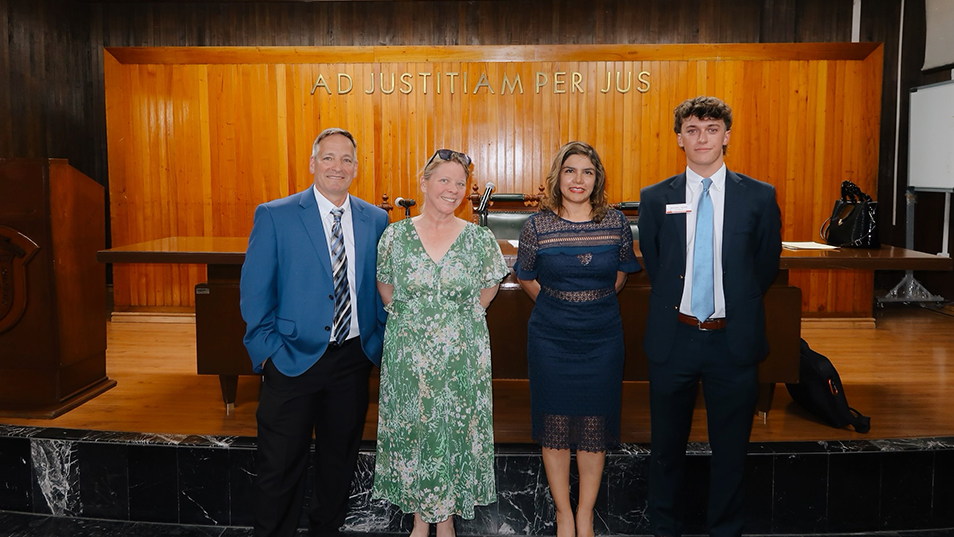Contact us
401 W. Kennedy Blvd.
Tampa, FL 33606-13490
(813) 253-3333
Over spring break, two UT instructors and a student traveled to Mexico to present lectures on the topics of missing persons and human trafficking. Over spring break, two UT instructors and a student traveled to Mexico to present lectures on the topics of missing persons and human trafficking. Photo courtesy of Angela Ramos

They were invited by the University of San Luis Potosí, and an international faculty travel grant made the trip possible for Associate Professor of Criminology and Criminal Justice Anthony LaRose and cybersecurity Lecturer Angela Ramos.
More UT News